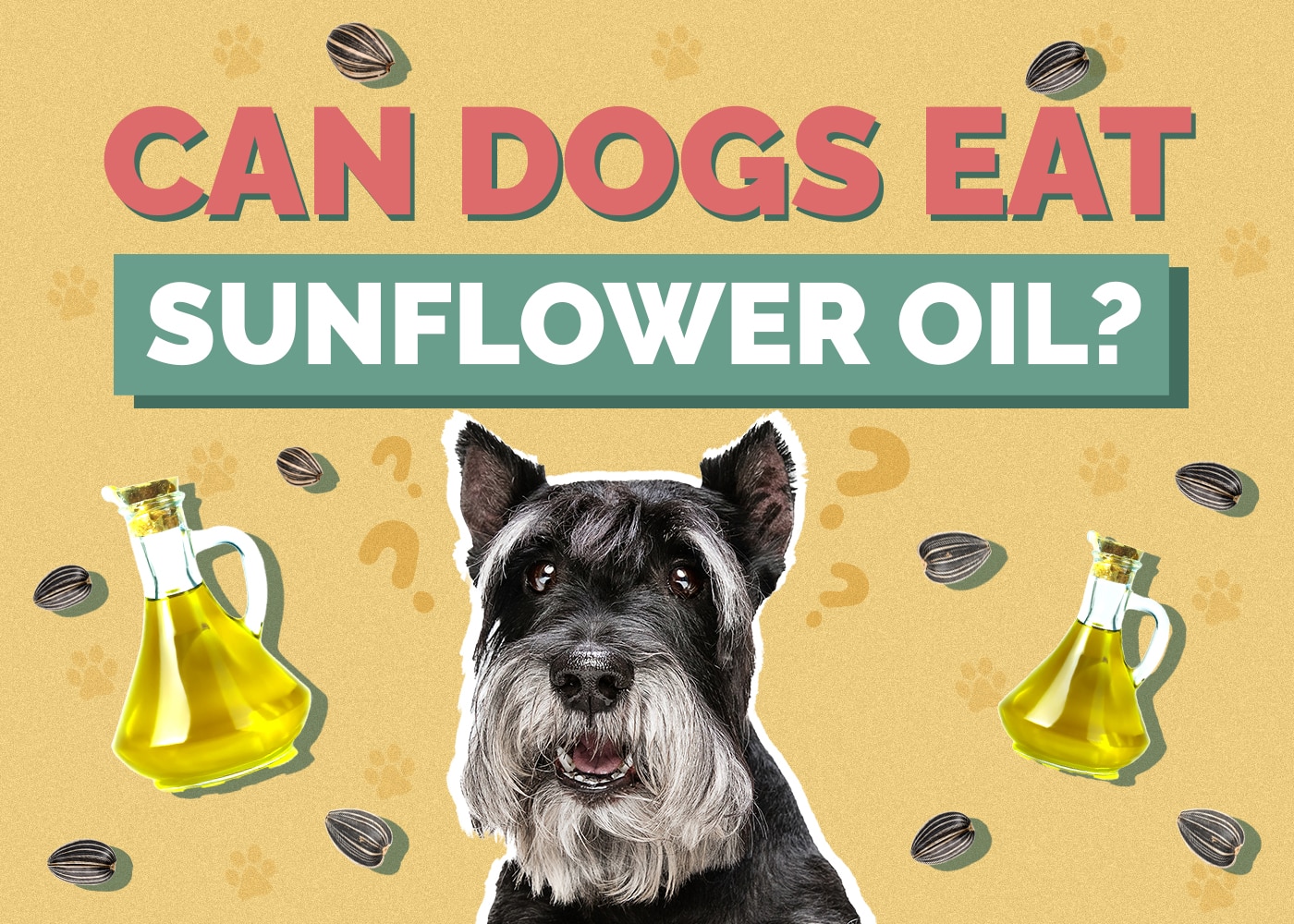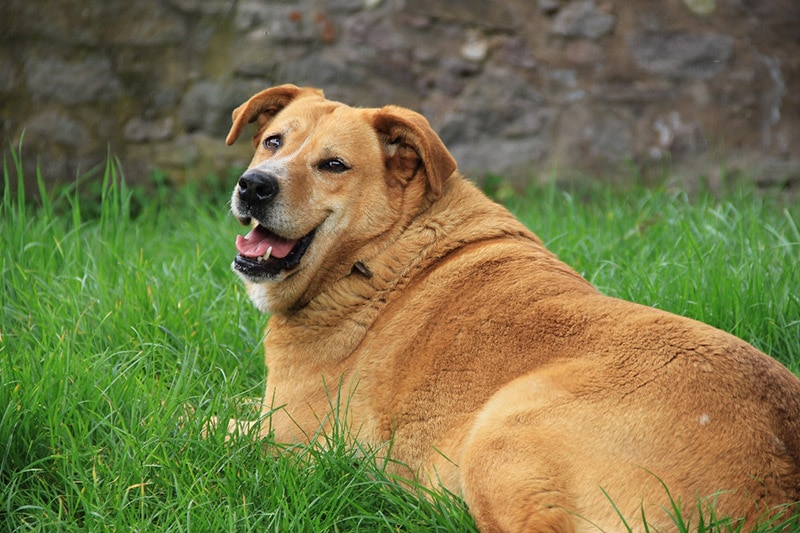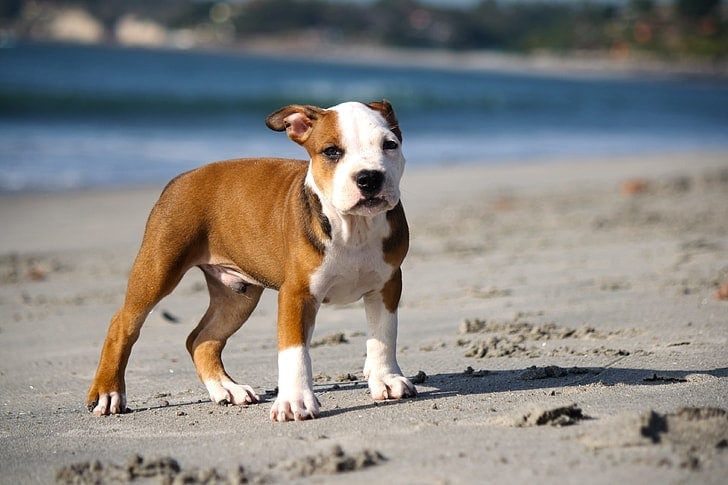Can Dogs Eat Sunflower Oil? Vet Reviewed Facts & FAQ
Updated on

Perhaps you’ve read about the purported health benefits of sunflower oil. They stem from its high content of monounsaturated and polyunsaturated fatty acids, which may lower cholesterol and, thus, reduce your risk of heart disease1. You would probably want the same thing for your canine companion as a pet owner.
However, while sunflower oil isn’t toxic to dogs, it’s best to limit how much you give your pet. The reason rests with its fat content and the impact it can have on your pup’s health2.
The Nutritional Value of Sunflower Oil
Fats are a vital part of your pet’s diet. They provide an excellent energy source, with roughly 2.25 times the yield of carbohydrates and protein. They also serve as a means to store fat-soluble nutrients, such as vitamins A and D. Sunflower oil doesn’t contain many nutrients other than small amounts of vitamins E and K. However, it does have fat—about 13.6 grams per tablespoon.
The latter accounts for its high-calorie count of 120 calories in the same serving size. Notably, all fat, including butter, has a similar amount. Even though humans and dogs share 84% of our DNA, that doesn’t mean we have the same dietary requirements. Sunflower oil contains omega-6 fatty acids, including one called linoleic acid.
The recommended allowance is 2.8–16.3 grams of linoleic acid for canines per day. This nutrient is essential for good skin and reproductive health. It also forms part of the cellular structure and membranes. Sunflower oil contains between 44–75% linoleic acid, or about 5.98–10.2 grams per tablespoon. These figures are well within the recommended allowance.

Sunflower Oil and Obesity
We also have to address the elephant in the room when it comes to discussing the dietary value of sunflower oil. It’s at the crux of our answer regarding safe consumption. While this fat is not toxic, it is still fat that packs a significant calorie punch. That’s particularly true when you put it in context with a dog’s recommended caloric intake.
For example, a 50-pound pup should get between 700–900 calories per day. A 1-tablespoon serving of linoleic acid would make up 13.3–17% of your pet’s total recommended calorie intake. It’s even greater with smaller pets. Remember that other than the fat, sunflower oil isn’t providing a lot of nutritional value. That’s why your pup’s dog food should provide the bulk of its caloric intake as a complete and balanced source.
Even humans should limit their intake of omega-6 fatty acids to no more than 5–10% of their caloric intake. Therefore, it’s easy to see why you should limit how much your pet gets outside of its regular diet. Their food has them nutritionally covered for omega-6 fatty acids. If your dog has allergies or a skin condition, your vet may recommend a supplement. However, sunflower oil isn’t a necessary addition.

Final Thoughts
Many dog owners consider their pets more than mere companions. It’s understandable why some may want to share their foods with them. Nevertheless, it’s best for your pup’s health to stick with its regular diet. The harm of offering your pooch sunflower oil isn’t its toxicity. Instead, it rests with the added calories that could lead to obesity and its associated health risks.













